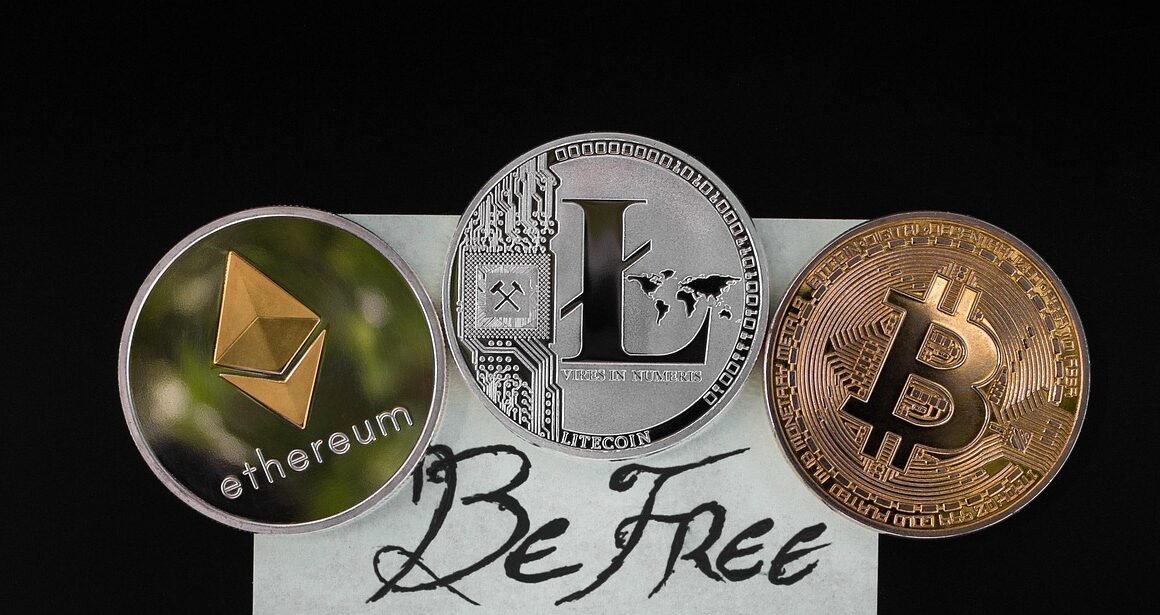Smart contracts are revolutionizing how we think about agreements and transactions, offering a secure, transparent, and automated way to execute deals without the need for intermediaries. These self-executing contracts, written in code and stored on a blockchain, are transforming industries from finance to supply chain management, and beyond. This blog post will delve into the world of smart contracts, exploring their functionality, benefits, use cases, and future potential.
What are Smart Contracts?
Defining Smart Contracts
At its core, a smart contract is a self-executing contract written in code. The terms of the agreement are directly written into lines of code. This code is then deployed and stored on a blockchain network, ensuring immutability and transparency. When predetermined conditions are met, the contract automatically executes, eliminating the need for manual intervention.
- Immutability: Once deployed, the code cannot be altered.
- Transparency: The contract code and execution history are publicly visible on the blockchain.
- Automation: Execution is automatic when predefined conditions are met.
- Decentralization: No single entity controls the contract’s execution.
How Smart Contracts Work
Smart contracts operate on an “if-then” logic. Here’s a simplified breakdown:
- Example: Imagine a smart contract for a rental agreement. The contract could state that if the tenant pays the rent by the 5th of the month, access to the property (digital key or permission) is automatically granted. If the rent isn’t paid by the due date, access is revoked.
Key Characteristics of Smart Contracts
- Trustless: Parties don’t need to trust each other because the code enforces the agreement.
- Secure: Blockchain’s cryptographic security protects the contract from tampering.
- Efficient: Automating processes reduces paperwork and delays.
- Cost-Effective: Eliminating intermediaries reduces transaction fees.
Benefits of Using Smart Contracts
Enhanced Security and Transparency
Smart contracts inherit the security and transparency of the blockchain. The immutable nature of the blockchain ensures that once a smart contract is deployed, it cannot be altered. All transactions related to the contract are recorded on the blockchain, providing a transparent and auditable history.
- Data Integrity: Tamper-proof records reduce the risk of fraud.
- Verifiability: Anyone can verify the contract’s code and execution history.
- Reduced Counterparty Risk: Built-in enforcement reduces the risk of one party not fulfilling their obligations.
Automation and Efficiency Gains
Smart contracts automate complex processes, eliminating manual intervention and paperwork. This leads to significant efficiency gains and reduced costs.
- Streamlined Operations: Automate workflows and reduce processing time.
- Reduced Costs: Eliminate intermediaries and administrative overhead.
- Faster Transactions: Automated execution speeds up the process significantly.
- 24/7 Availability: Smart contracts are operational around the clock.
Reduced Costs and Intermediaries
One of the most significant advantages of smart contracts is the elimination of intermediaries. By automating processes and enforcing agreements through code, smart contracts reduce the need for lawyers, escrow services, and other third parties.
- Lower Transaction Fees: Reduced reliance on intermediaries translates to lower costs.
- Direct Interaction: Parties can interact directly without intermediaries.
- Faster Dispute Resolution: Built-in enforcement mechanisms help resolve disputes quickly and efficiently.
Practical Applications of Smart Contracts
Supply Chain Management
Smart contracts can revolutionize supply chain management by providing greater transparency and traceability. They can be used to track goods from origin to delivery, ensuring authenticity and preventing counterfeiting.
- Track and Trace: Monitor the movement of goods in real-time.
- Automated Payments: Automate payments upon delivery confirmation.
- Improved Transparency: Provide stakeholders with full visibility into the supply chain.
- Provenance Tracking: Verify the origin and authenticity of products.
- Example: A smart contract could automatically release payment to a supplier once a shipment arrives at its destination and is verified by a sensor confirming temperature and humidity conditions.
Decentralized Finance (DeFi)
Smart contracts are the backbone of Decentralized Finance (DeFi), enabling lending, borrowing, trading, and other financial services without traditional intermediaries.
- Decentralized Exchanges (DEXs): Facilitate peer-to-peer trading without a central authority.
- Lending and Borrowing Platforms: Automate lending and borrowing processes.
- Yield Farming: Reward users for providing liquidity to DeFi platforms.
- Stablecoins: Manage the issuance and redemption of stablecoins.
- Example: A DeFi lending platform uses smart contracts to automatically match lenders and borrowers, manage collateral, and distribute interest payments.
Healthcare
Smart contracts can improve data security and interoperability in healthcare, enabling patients to securely share their medical records with healthcare providers.
- Secure Data Sharing: Patients control access to their medical records.
- Automated Insurance Claims: Automate the processing of insurance claims.
- Clinical Trial Management: Streamline the management of clinical trials.
- Drug Supply Chain: Track and trace pharmaceuticals to combat counterfeiting.
- Example: A patient uses a smart contract to grant temporary access to their medical records to a doctor for a specific consultation.
Real Estate
Smart contracts can simplify and streamline real estate transactions, reducing paperwork and delays.
- Automated Escrow: Manage escrow accounts automatically.
- Faster Property Transfers: Streamline the process of transferring property ownership.
- Tokenized Real Estate: Fractionalize property ownership and increase liquidity.
- Example: A smart contract automatically transfers ownership of a property to the buyer once the payment is verified and all other conditions are met.
Challenges and Limitations
Smart Contract Security
Smart contracts are vulnerable to bugs and exploits, which can lead to significant financial losses. Thorough auditing and testing are crucial to ensure the security of smart contracts.
- Code Vulnerabilities: Bugs in the code can be exploited by malicious actors.
- Audit Requirements: Regular audits by security experts are necessary.
- Formal Verification: Using mathematical methods to prove the correctness of the code.
- Immutable Bugs: Once deployed, bugs cannot be easily fixed.
Scalability Issues
Many blockchain networks, especially Ethereum, face scalability challenges, which can lead to high transaction fees and slow processing times.
- Transaction Throughput: Limited number of transactions per second.
- Gas Fees: High transaction fees can make smart contract execution expensive.
- Layer-2 Solutions: Utilizing layer-2 scaling solutions to improve scalability.
Legal and Regulatory Uncertainty
The legal and regulatory landscape surrounding smart contracts is still evolving. This uncertainty can create challenges for businesses looking to adopt smart contracts.
- Legal Enforceability: The legal status of smart contracts is unclear in many jurisdictions.
- Regulatory Compliance: Compliance with existing regulations is complex.
- Tax Implications:* The tax implications of smart contract transactions are uncertain.
Conclusion
Smart contracts represent a significant technological advancement with the potential to transform numerous industries. While challenges and limitations exist, ongoing development and increasing adoption suggest a bright future for smart contract technology. By understanding the fundamentals, benefits, and potential use cases of smart contracts, individuals and businesses can leverage this powerful tool to create more secure, transparent, and efficient processes. As the technology matures and regulations become clearer, we can expect to see even wider adoption and innovation in the world of smart contracts.



